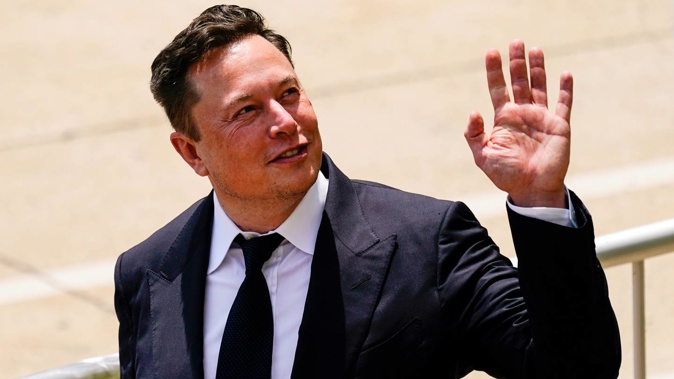
A United States Army official has praised Elon Musk's Starlink, the satellite internet service providing high speed connections to the most remote regions in Ukraine, claiming the technology has thwarted Vladimir Putin's propaganda efforts and assisted forces on the ground.
US Brigadier General Steven Butow — who has been working closely with SpaceX as director of the space portfolio at the defence innovation unit — said SpaceX's Starlink services have been a crucial asset to the Ukrainian military.
Musk shipped Starlink dishes to Ukraine within hours of a request for terminals from Ukrainian politician Mykhailo Fedorov, following a series of cyber attacks originating from Russia.
SpaceX has continued to send materials, reporting some 15,000 Starlink kits have been sent to Ukraine over the past four months as conflict rages.
The programme has been in part subsidised by the US Government.
In April, the Washington Post reported the US Agency for International Development paid SpaceX US$2 million ($3.1m) for more than 1300 kits to be sent to Ukraine.
As a result, officials on the ground have been able to immediately send co-ordinates for artillery strikes against Russia and continue broadcasting Ukraine President Volodymyr Zelenskyy's speeches across the world, even from the most remote areas in the country.
/cloudfront-ap-southeast-2.images.arcpublishing.com/nzme/6XLN56RKGWUE2HPDP537HTTSNQ.jpg)
Ukrainian President Volodymyr Zelenskyy looks at a flag of a military unit close to the front line in Donetsk region, Ukraine, on June 5. Photo / AP
"The strategic impact is, it totally destroyed [Vladimir] Putin's information campaign," Butow said via Politico.
"He never, to this day, has been able to silence Zelenskyy."
Starlink is now used every day by the Ukrainian military to plan missions and fight misinformation from Russia. It has also enabled soldiers keep in touch with their family after being conscripted under new Ukrainian legislation upon Russia's invasion.
Last week, Zelenskyy praised the satellite service for keeping Ukraine's channel of communication open to the rest of the world, as Russia continues its attempts to lock down the nation under siege.
"It helped us a lot, in many moments related to the blockade of our cities, towns, and related to the occupied territories," he told Wired in an interview.
"Sometimes we completely lost communication with those places. To lose contact with those people is to lose control completely, to lose reality.
"Believe me: People who got out of the occupied cities, where there was no such assistance as Starlink, said that the Russians told them that Ukraine doesn't exist any more, and some people even began to believe it. I am really grateful for the support of Starlink," Zelenskyy added.
It came as several European heads of military cyber defence forces agreed that Russia has been far less effective than expected in employing digital combat capabilities in their offensive against Ukraine.
"Among cybersecurity experts we were pretty sure that there would be a cyber Pearl Harbour based on past experience of Russian behaviour and capabilities," said General Karol Molenda, head of Poland's National Cyber Security Centre.
But Ukraine was prepared and "withstood attacks from Russia", Molenda told a meeting of the International Cybersecurity Forum (FIC) held in the northern French city of Lille.
This showed, he added, that you can prepare for cyber conflict against Russia, which he said was "good at offensive capabilities but not so good at defence".
He cited multiple cyber attacks which had hit the country, the work mainly of independent hackers.
/cloudfront-ap-southeast-2.images.arcpublishing.com/nzme/QVDCVT6PT3YR74MXQ3QZJIQNFY.jpg)
Russian President Vladimir Putin. Photo / AP
Lithuania's head of cybersecurity, Colonel Romualdas Petkevicius, said Russia was "not ready to wage co-ordinated cyber and kinetic war".
There are cyber activities everywhere in Ukraine, "thousands of them," he told AFP. "But I don't think they are very well planned".
General Didier Tisseyre, head of France's cyber defence force, made a similar observation about a disconnect between computer attacks and Russia's military offensive on the ground.
"Maybe they didn't manage to organise it the way they wanted to", and their capacities "are not as strong as we imagine", he said.
But the analysis of the conflict is complicated by the fact that independent hacker groups have entered the battle.
The current conflict in cyberspace "is like a rugby world cup where all the teams are on the field without their distinctive jerseys. The public is on the field too, and you have to prevent tries from being scored".
- Alex Blair, news.com.au
Take your Radio, Podcasts and Music with you









